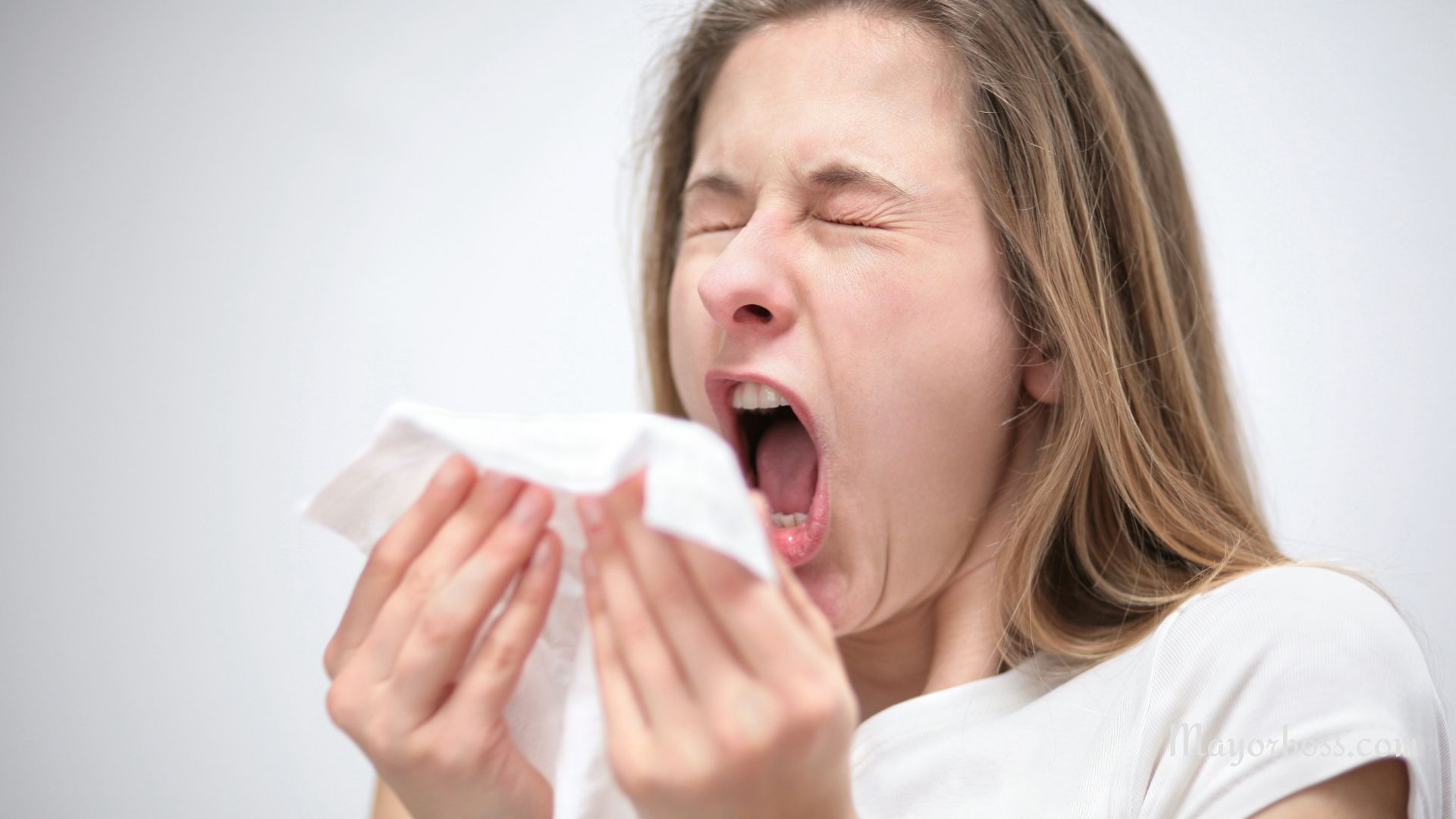How Do I Stop Sneezing?
Sneezing can be a pesky and persistent issue, can’t it? Whether it’s from a cold, allergies, or just a tickle in your nose, the quest to stop sneezing is a common one. But fear not because there are several strategies you can employ to reduce or eliminate sneezing. Let’s take a closer look at why we sneeze and how you can keep those sneezes at bay.

Why We Sneeze?
Sneezing is your body’s way of removing irritants from your nose or throat. Common triggers include:
- Allergens like pollen, dust, or animal dander
- Viral infections like the common cold or flu
- Dry air or changes in temperature
- Bright light (a condition known as photic sneeze reflex)
How to Stop Sneezing
1. Identify and Avoid Triggers
If allergens are the culprit, identifying and avoiding them is key. This might involve:
- Keeping your living space clean: Regular dusting and vacuuming can minimize dust mites and pet dander.
- Using air purifiers: These can help remove airborne allergens.
- Staying indoors during high pollen counts: Keeping windows closed and using air conditioning during allergy season can be effective.
2. Addressing Dry Air
Dry air can irritate your nasal passages, leading to sneezing. Here’s what you can do:
- Use a humidifier: This adds moisture to the air, soothing your nasal passages.
- Stay hydrated: Drinking enough water keeps your mucous membranes moist.
3. Managing Exposure to Bright Light
For those with a photic sneeze reflex:
- Wear sunglasses: This can help when stepping out into bright sunlight.
- Gradually adjust to light changes: When moving from a dark to a light environment, do so slowly to allow your eyes to adjust.
4. Over-the-Counter Solutions
Certain medications can help, such as:
- Antihistamines: These are effective for allergy-related sneezing.
- Decongestants: Useful for reducing nasal congestion and sneezing caused by colds.
5. Home Remedies
Sometimes, simple home remedies can offer relief:
- Peppermint oil: Its menthol content can clear nasal passages.
- Neti pots or saline sprays: These can flush out irritants from your nasal passages.
6. Building a Healthier Immune System
A strong immune system can fend off colds and reduce sneezing:
- Eat a balanced diet: Ensure you’re getting enough vitamins and minerals.
- Get regular exercise: This boosts overall immune function.
- Ensure adequate sleep: Lack of sleep can weaken your immune system.
7. Professional Consultation
If sneezing persists:
- See an allergist: They can identify specific allergies and suggest targeted treatments.
- Visit a doctor: Persistent sneezing may need medical attention, especially if it’s due to an infection or a chronic condition.
Frequently Asked Questions
Can sneezing be completely stopped? While it’s difficult to stop sneezing entirely, especially when it’s due to a temporary condition like a cold, the above strategies can significantly reduce the frequency and severity of sneezes.
Is it harmful to suppress a sneeze? Yes, suppressing a sneeze can be harmful. It can lead to issues like ear damage, ruptured blood vessels, or, in rare cases, a weakened blood vessel in the brain. It’s safer to let the sneeze out, preferably into a tissue or your elbow.
Are there any quick fixes to stop a sneeze? If you feel a sneeze coming on, try these quick techniques:
- Press your tongue against the roof of your mouth: This can interrupt the reflex.
- Pinch your nose: Gently pinching your nose can sometimes stop a sneeze.
- Breathe through your mouth: This can sometimes stop the sneeze reflex.
- Look away from bright lights: If bright light triggers your sneezes.
Remember, these methods might not work for everyone or in every situation, but they’re worth a try!
Why does it smell when sneezing? Sometimes, the presence of bacteria, especially in cases of sinus infections, can produce a distinct smell. The combination of mucus, bacteria, and inflammation can result in a peculiar odor noticeable when sneezing.
Conclusion
Sneezing, while often a minor annoyance, can be managed effectively with the right strategies. By understanding your triggers, employing practical solutions, and seeking medical advice when necessary, you can reduce the frequency and intensity of those sneezes. Keep in mind that sneezing is a natural body response, and while we can manage it, it’s also a sign that our bodies are working to protect us from irritants and infections. So, the next time you feel a sneeze coming on, remember these tips and know that you have the tools to handle it. Stay healthy and sneeze-free!
